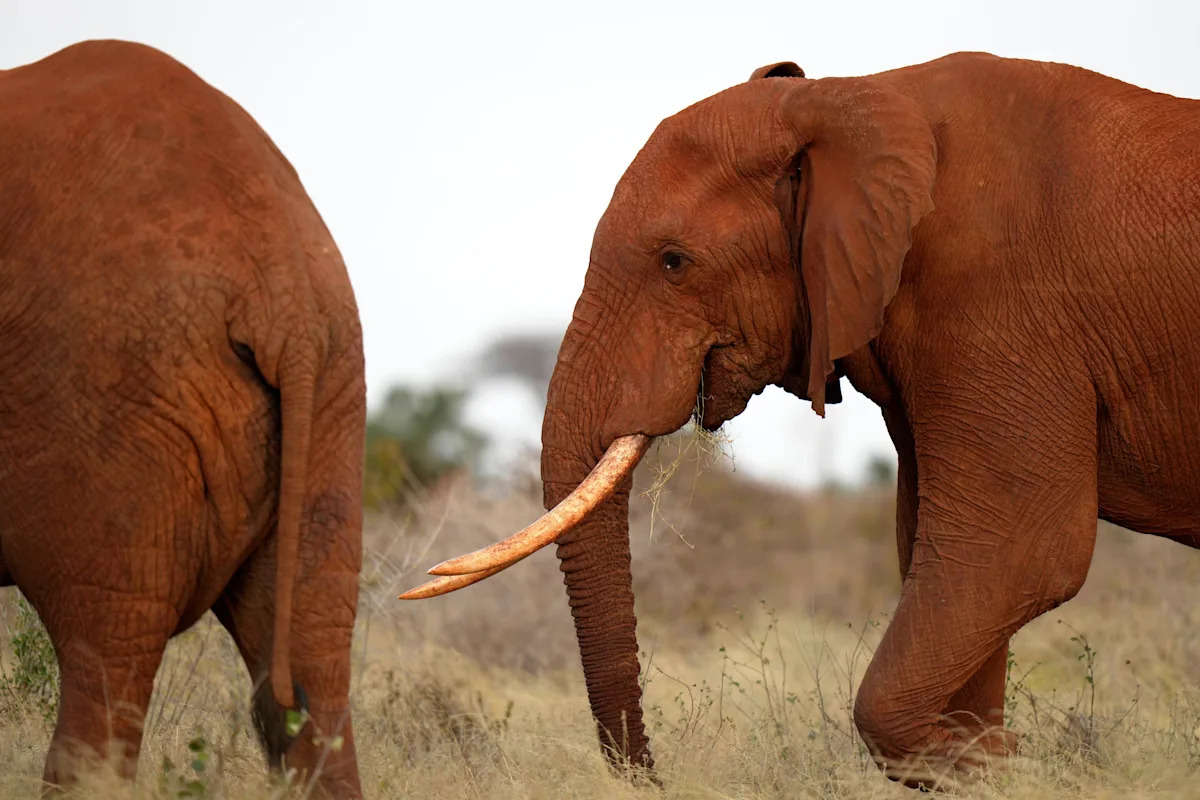In the Taita hills of southern Kenya, farmers are adopting innovative strategies to deter elephants from raiding their crops. Elephants pose a significant threat, often damaging farmland and occasionally injuring or killing individuals. For instance, farmer Richard Shika, 68, shares a harrowing experience where an elephant charged at him while he was attempting to scare it away from his maize field. He managed to escape but remains acutely aware of the dangers posed by these animals. Tragically, in a recent incident reported by local media, a three-year-old girl was killed by an elephant in Taita Taveta County.
The Taita hills are located near Tsavo East National Park, less than 10 kilometers (6 miles) away, and Tsavo West National Park, which curves around the area. These parks are unfenced, allowing wildlife, including elephants, to migrate freely. According to Yuka Luvonga, a researcher with the conservation organization Save The Elephants, human development has increasingly obstructed traditional elephant migratory paths, leading to more frequent encounters with humans.
With elephants consuming around 150 kilograms (330 pounds) of vegetation daily, preventing them from entering farms is challenging. Shika explains that elephants are intelligent and can easily discern whether a fence is electrified, often testing them by charging through when they determine it is safe. The Kenya Wildlife Service estimates that approximately 30 to 35 people are killed each year due to conflicts with elephants. In retaliation, some communities resort to harming elephants, but local farmers are exploring more effective and humane solutions.
One such solution is the use of beehives. Shika, along with 49 other farmers, has installed beehives suspended from wires around their fields. Elephants, which are known to avoid areas with bees due to their fear of being stung, help keep the animals at bay. Shika has found success with this approach, stating, “With hives acting as a fence, I can continue crop-farming and also earn a livelihood from honey.” This year alone, he has generated nearly $250 from honey sales.
In addition to beekeeping, changing crop types can significantly reduce the likelihood of elephant encounters. Elephants are particularly attracted to maize and watermelons, while they are repelled by sesame, which emits a scent that elephants dislike. Gertrude Jackim, 70, is among the 100 farmers who have transitioned to growing sesame seeds. She notes, “Over the years, the elephants have become too destructive,” emphasizing the urgency of adapting to the situation.
These farming practices have proven effective in promoting coexistence between humans and elephants. Conservationists like Luvonga advocate for awareness and education within communities to foster a more harmonious relationship with wildlife. She states, “We have to live harmoniously with these elephants.” As farmers like Shika and Jackim demonstrate, innovative techniques like beekeeping and crop diversification not only protect livelihoods but also contribute to the sustainable management of human-wildlife interactions in Kenya.
Both people and elephants can thrive in this region, provided that collaboration and understanding continue to develop. As the farmers of Taita Taveta exemplify, creative solutions can lead to a mutually beneficial coexistence.




































































